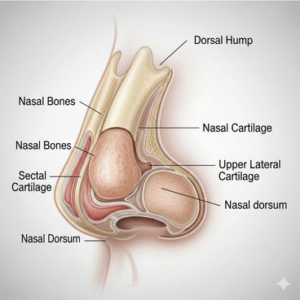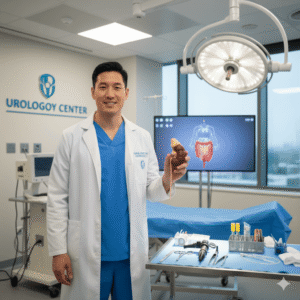Overview
Constipation is a common digestive disorder characterized by infrequent, difficult, or painful bowel movements. It can affect individuals of all ages and may be acute or chronic. While often not life-threatening, persistent constipation can significantly reduce quality of life. In South Korea, advanced gastroenterology clinics provide effective diagnosis, treatment, and management strategies.
What is Constipation?
Constipation occurs when bowel movements become less frequent than normal or stools become hard, dry, and difficult to pass. Chronic constipation is typically defined as having fewer than three bowel movements per week for several weeks, often accompanied by straining, bloating, or a feeling of incomplete evacuation.
Symptoms
- Infrequent bowel movements (fewer than three per week)
- Hard, dry, or lumpy stools
- Straining during bowel movements
- Feeling of incomplete evacuation
- Abdominal bloating or discomfort
- Rectal pain or bleeding due to straining
Causes
- Low fiber diet
- Insufficient fluid intake
- Sedentary lifestyle or lack of physical activity
- Medications (opioids, antacids, antidepressants)
- Neurological disorders (e.g., Parkinson’s disease, spinal cord injury)
- Hormonal imbalances (e.g., hypothyroidism, diabetes)
- Chronic intestinal diseases (e.g., irritable bowel syndrome, colorectal obstruction)
Risk Factors
- Older age, especially above 65
- Female gender (more prone due to hormonal factors)
- Diet low in fiber
- Inadequate hydration
- Sedentary lifestyle
- History of gastrointestinal disorders
- Pregnancy or postpartum period
Complications
- Hemorrhoids due to straining
- Anal fissures or rectal prolapse
- Fecal impaction
- Chronic abdominal pain or bloating
- Decreased quality of life and emotional distress
Prevention
- Eat a high-fiber diet (fruits, vegetables, whole grains)
- Drink plenty of water throughout the day
- Engage in regular physical activity
- Establish a consistent bowel routine
- Avoid delaying the urge to defecate
- Review medications with your doctor if constipation develops
Treatment Options in Korea
South Korea offers advanced gastroenterology care for constipation, combining lifestyle interventions, medications, and specialized procedures when necessary:
- Diagnosis
- Medical history and physical examination
- Blood tests to rule out hormonal or metabolic causes
- Colonoscopy or imaging for structural causes
- Functional tests (e.g., anorectal manometry, defecography)
- Medications
- Bulk-forming laxatives (psyllium, methylcellulose)
- Stool softeners (docusate sodium)
- Osmotic laxatives (lactulose, polyethylene glycol)
- Stimulant laxatives for short-term relief (senna, bisacodyl)
- Prescription medications for chronic idiopathic constipation (linaclotide, prucalopride)
- Lifestyle and Home Care
- High-fiber diet and hydration
- Regular exercise
- Establishing a bowel routine
- Avoiding overuse of stimulant laxatives
- Specialized Clinics in Korea
- Severance Hospital Gastroenterology Clinic – Advanced diagnosis and chronic constipation management
- Samsung Medical Center Digestive Disease Center – Functional bowel disorder treatments
- Asan Medical Center Gastrointestinal Department – Comprehensive care including endoscopic evaluation
- Follow-up and Long-term Management
- Regular monitoring for chronic or refractory cases
- Education on dietary and lifestyle adjustments
- Management of underlying conditions contributing to constipation













